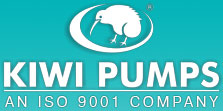
Pumps Information » Injection Pumps
Injection Pumps
Injection Pumps are designed to inject measured amounts of fluid into a reservoir or production system. They are often used in vehicles for pumping fuel into the cylinders of the engine. Suppliers of injection pumps are located across the United States and around the world. They meet many different quality standards and regulatory requirements.Injection pumps used in diesel engines are driven indirectly by gears or chains from the crankshaft and operate at very high pressures.
A diesel fuel injection pump is coordinated by the timing belt of the engine to introduce fuel into the engine just before the cylinders compression stroke reaches the top. Because of the high pressure environment, working on a diesel injection pump requires certain safety measures to ensure that an operator is not injured by pressurized, escaping fuel. Another type of fuel injection pump is a rotary pump or distributor pump, used primarily in small trucks and cars. This type of fuel injection pump delivers fuel to the carburetor or fuel injection system. An electronic fuel injection pump system has built-in safety logic that will shut down the pump in the event of an accident or if it registers no oil pressure in the engine.
Other types of injection pumps include pumps for other industries, such as irrigation, horticulture, and water treatment technologies. Water driven injection pumps are installed directly into a water supply line so that the injector functions by using water pressure as its source of power. A water driven injection pump introduces chemicals or fertilizer into the water supply of an irrigation system. Chemical injection pumps work in a similar way and are also used in irrigation, or chemigation, which is the process of delivering specific chemicals to soils or crops. A chemical injection pump draws a measured amount of chemicals from a containment tank and injects it into the irrigation system.
